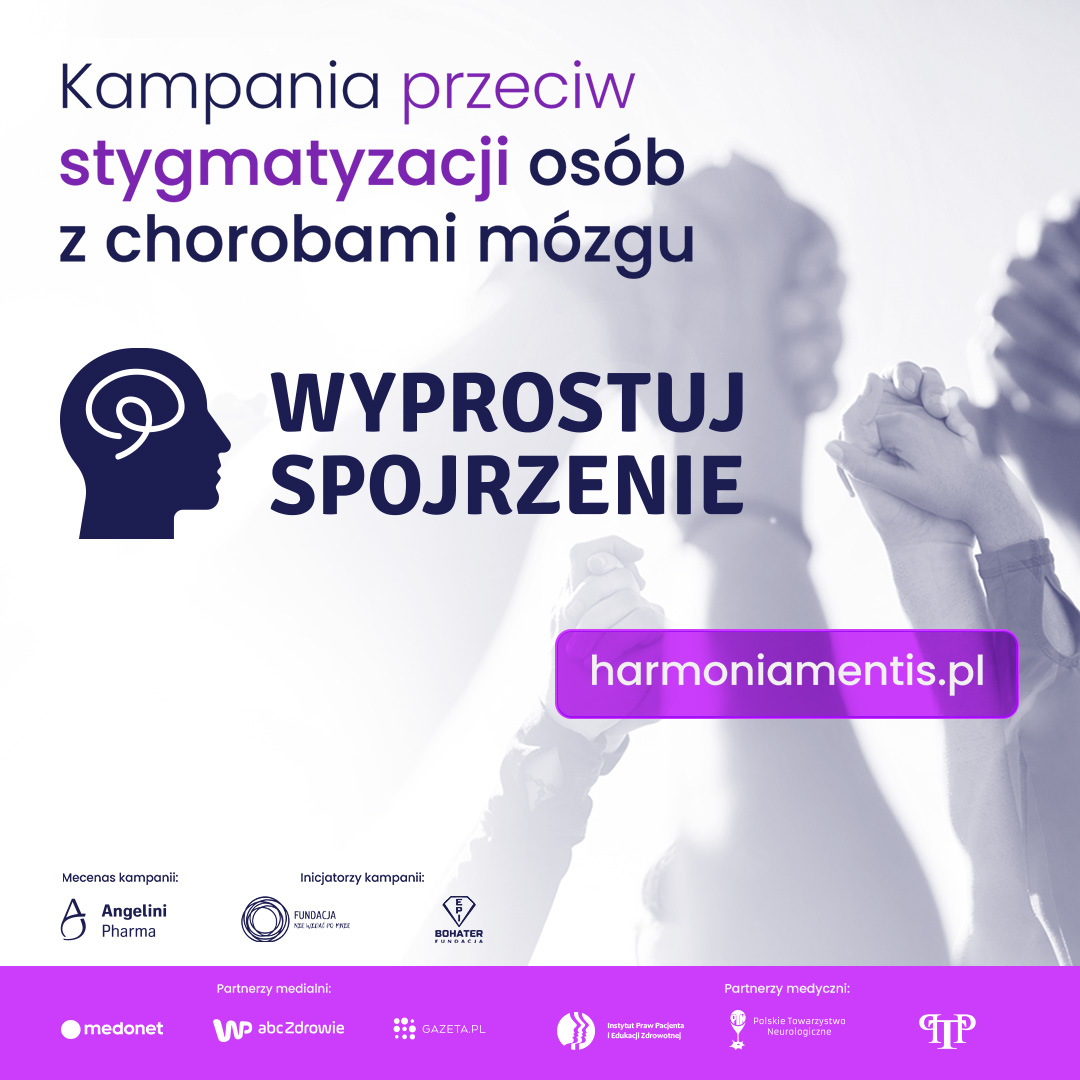Brain diseases are a growing health problem that affects an increasing number of people worldwide. In Poland, depression affects approximately 1.2 million people[1], for schizophrenia 385 thousand[2], and for epilepsy ca. 400 thousand.[3] Despite being common diseases, there is still not enough knowledge about them. There are still many prejudices surrounding people with the disease. These result in stigmatisation, which leads to serious consequences - exacerbating the health problems of sufferers, contributing to their isolation and exclusion, causing problems in their professional and social lives.
The answer to this problem is Straighten Your Vision campaign. It aims to talking about brain diseases in the right way, supplementing knowledge and correcting a distorted view, so that patients can rid themselves of shame and fear. The campaign was initiated by foundations You can't see past me, working for the benefit of people with mental disorders, and EPI-BOHATER, which supports people with epilepsy. Patron of the campaign is Angelini Pharma Poland.
One element of the campaign is a report on the stigmatisation of patients with central nervous system disorders. For the purpose of the report, the first such detailed survey was carried out in our country (on a representative sample) on the level of knowledge of Poles about brain disorders, as well as stereotypes and myths about depression, schizophrenia and epilepsy.
"Observations over a number of recent years indicate that the Public knowledge about nervous system diseases in Poland is largely based on stereotypes. This raises the enormous challenge of raising public awareness of this issue," said Professor Konrad Rejdak, MD, President of the Polish Neurological Society.
According to Alicja Lisowska, President of the EPI-BOHATER Foundation, which works to prevent social exclusion of people with epilepsy, study highlights need for educationto improve understanding of the disease and support those affected. "It is important that the action taken is supported not only by patient organisations, but also by state authorities or the media", says Alicja Lisowska.
Education is a particularly important topic because, as Professor Dominika Dudek, MD, psychiatrist and President of the Polish Psychiatric Association, reminds us. sick people are discriminated against not only by their family members, but also at work, in public places and even in their relations with the health service. "Often this is due to insufficient knowledge and therefore fear of the unknown" - he emphasises.
Ursula Szybowicz agrees, president of the 'You can't see past me' foundation, which runs projects on mental health prevention. As he recalls, according to the survey results as many as 25% respondents had witnessed situations in which people with disorders were treated badly, and 4% respondents had personal experiences of this type. "Meanwhile, any manifestation of discrimination, especially exclusion from the group, lack of respect, disregard for the opinion of the disturbed person, affects the treatment process and, at the same time, contributes to an increased risk of relapse," he assesses.
The Polish Psychiatric Society, the Polish Neurological Society, the Institute for Patients' Rights and Health Education, as well as the Social Insurance Institution and the Embassy of Italy, are honorary patrons of the initiative.
The full report and details of the campaign are available at https://harmoniamentis.pl/wyprostujspojrzenie/.
[1] https://ezdrowie.gov.pl/portal/home/badania-i-dane/zdrowe-dane/raporty/nfz-o-zdrowiu-depresja (accessed 15.05.2024)
[2] https://www.mp.pl/pacjent/psychiatria/aktualnosci/144697,na-schizofrenie-choruje-prawie-400-tys-polakow (accessed 15.05.2024)
[3] https://www.nfz.gov.pl/aktualnosci/aktualnosci-oddzialow/epilepsja-sroda-z-profilaktyka-w-ow-nfz,587.html (accessed 15.05.2024)

